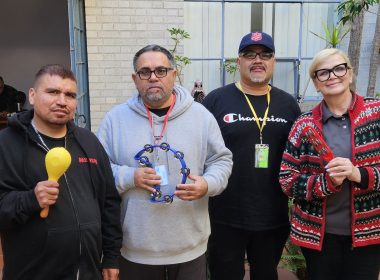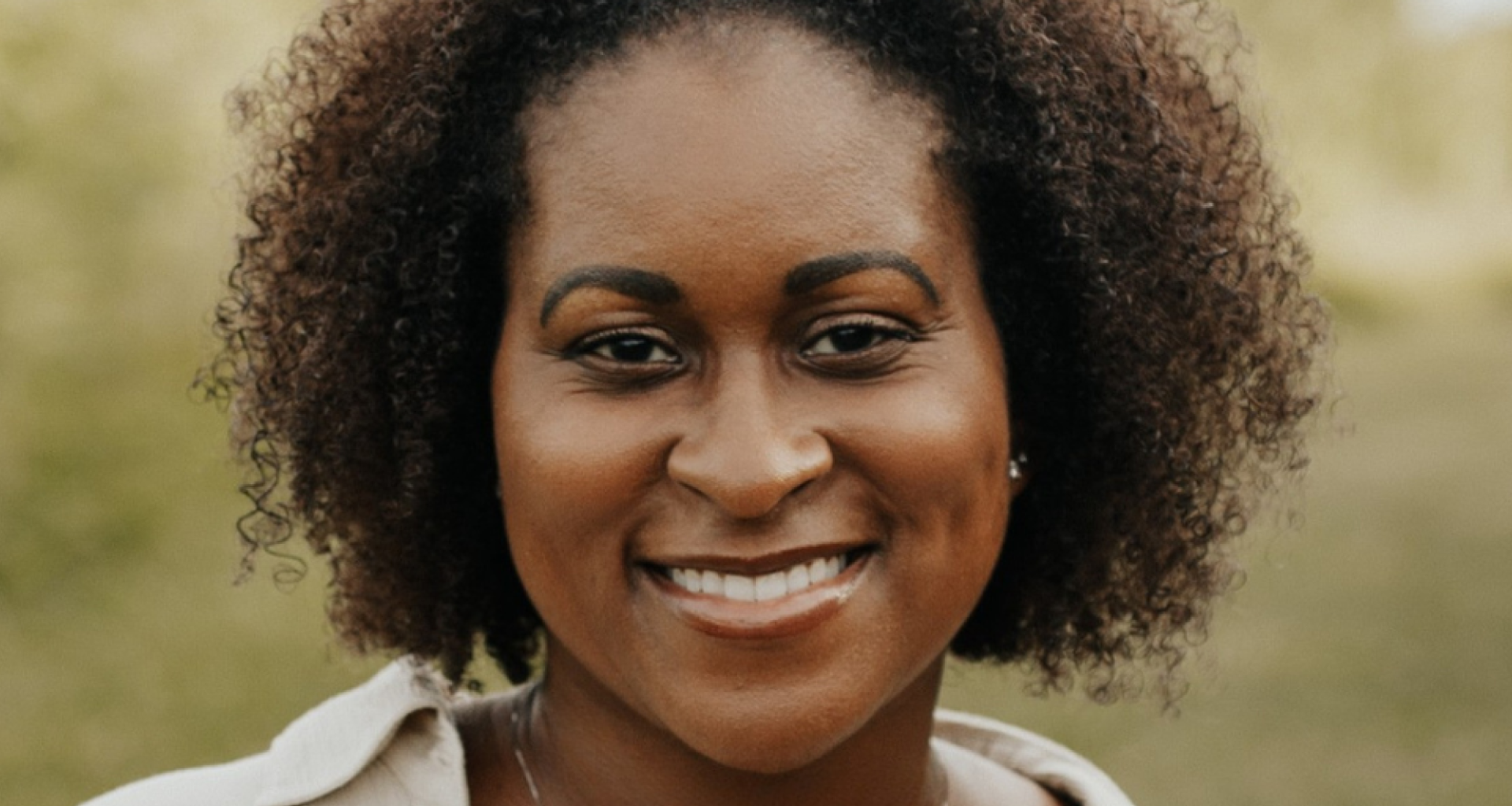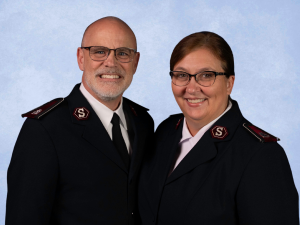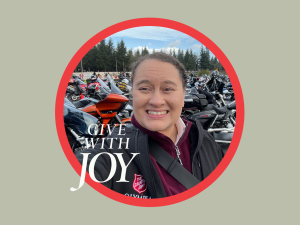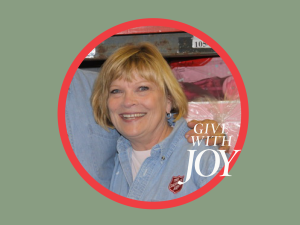Today, we’re talking about something that might sound crazy in our achievement-driven culture: radical relaxation. And our guest brings a perspective that’s both scientifically grounded and spiritually profound.
This conversation is part of our special “Slowing Down” series here on The Do Gooders Podcast. As summer winds down and we feel that familiar pull toward fall’s packed schedules, we’re exploring a different idea: that slowing down isn’t about doing less good in the world, but about doing good in a way that’s sustainable, joyful and rooted in the rhythms God designed for human flourishing.
Tracie Braylock is a holistic nurse educator, wellness consultant and author of “Radical Relaxation: Releasing the Stress You Were Never Meant to Carry.” But Tracie’s journey to wellness advocacy began in one of the most high-pressure environments imaginable: the operating room. As a surgical nurse, she witnessed firsthand how stress doesn’t just make us feel bad—it literally makes us sick, disrupting our bodies’ ability to heal and function as God designed.
With over 15 years of experience in holistic nursing, Tracie has made it her mission to help people understand that stress isn’t just something to manage, but something to eliminate. She advocates for a mind, body and spirit approach to wellness, and in her book, she weaves together medical expertise with insights from the Gospel of John to show us how relaxation isn’t a luxury—it’s actually a God-designed bodily function.
If you’ve ever felt guilty about taking time to rest, if you’ve wondered whether slowing down means you care less about important causes, or if you’re simply exhausted from carrying stress you were never meant to bear, this conversation will offer you both permission and practical guidance for what Tracie calls “radical relaxation.”
So let’s discover together how releasing the stress we were never meant to carry can actually enhance our ability to show up healthy and energized for the work we’re meant to do in this world.
Show highlights include:
- Why stress is more than a feeling—it impacts digestion, sleep, mood and overall health
- What it means to pursue “radical” relaxation and get to the root of stress
- How faith and science work together in holistic wellness
- The difference between God’s peace and the world’s version of relaxation
- Practices to prevent stress from “contaminating” our lives
- Simple daily steps for releasing stress, from breathing exercises to time in nature
Listen and subscribe to the Do Gooders Podcast now. Below is a transcript of the episode, edited for readability. For more information on the people and ideas in the episode, see the links at the bottom of this post.
* * *
Christin Thieme: Tracie, you were an operating room nurse for years before becoming someone really steeped in holistic wellness. Can you share some of what you witnessed in the medical field, if you will, that convinced you that stress isn’t just about feeling overwhelmed, and it’s actually making people sick.
Tracie Braylock: Oh, yes. I think sometimes we just kind of overlook stress, and stress is really like a river in the background of life, and it’s just if we don’t begin to notice it and take control of the direction of it, it can really wear us down. It can fuel those chronic conditions that people are experiencing that ultimately lead them to the operating room. And so I really wanted to get ahead of that and maybe drop some insight for some that they can avoid this path, if you don’t necessarily have to end up here, but sometimes people are missing those tools and they need a little bit more information about how they can take care of their own health.
Christin Thieme: What are some of those warning signs that maybe tell us stress has moved from just the everyday pressures of life to something that can be actually damaging for our health?
Tracie Braylock: Sleep disturbances, that’s a big one. Digestion, if you’re having stomach issues, sometimes the food that you’re eating upsets you, or sometimes it’s your body’s way of telling you, “Hey, something else is going on here, and the food is just agitating you because you’re already agitated.” And so sometimes it’s the little everyday things that you have to pay attention to and notice those shifts that are occurring like, “Oh, this didn’t used to happen to me.” And get to the root of that, what’s going on there? Yeah, even your mood. How are you responding to situations? Are you getting really snippy, really short with people? Just paying attention to yourself, self-awareness is amazing and noticing, “Hey, maybe I’m feeling something here.” You might not be calling it stress, but that very well may be what it is.
Christin Thieme: Yeah, those cues or clues pointing toward something. So you’ve written this book called “Radical Relaxation,” and that title is striking. Why did you choose the word radical?
Tracie Braylock: For a couple of reasons. First of all, I understand that to just tell somebody who’s feeling very stressed, tell them to relax, it can seem like a radical feat. They’re like, “What? What, do you mean? That’s the last thing I can do right now.” So I understand, and we’re acknowledging that. However, I want you to know it’s possible, one step at a time, it doesn’t have to be some big sweeping changes in your life, but the little things actually add up.
And then on the other side, of course, I’m from the operating room, so a radical procedure is something where you get to the root and you remove all of what is there. So in this case, we want to get to the root of the stress. We want to take as much away from ourselves, our daily lives as possible and replace that with relaxation.
Christin Thieme: The subtitle says, “Releasing the Stress You Were Never Meant to Carry.” Does that suggest there is some stress we are meant to carry, maybe a healthy stress versus a toxic stress? Or what would be your response to that question?
Tracie Braylock: Well, my response to that is all stress has the same reaction within the body. So when you’ve experienced a stressor, what bothers me may not bother you and vice versa. So acknowledging that stress is subjective, and from there, just realizing that even if you are experiencing the stress, do you have to? Meaning, what are the things that you can address? What are the things that you can let go of? What are the things that you can get help with, that’s important to realize. And so just acknowledging, yes, the stress is present, but there are steps that I can take to begin weeding away some of it and getting it out of the way.
Christin Thieme: You bring together your medical expertise with teachings from the Gospel of John specifically, how do you see your faith and your science background? How does it all work together when it comes to wellness?
Tracie Braylock: It’s inseparable for me. It’s one of the reasons why I take a holistic approach to my practice. I was looking for something a little bit more in my nursing practice, something that felt more in alignment with what I believed and the holistic specialty, it looks at all of who you are, your mind, body, and spirit. And it doesn’t tell you, “No, we’re only going to focus on that foot that’s bothering you.” It really takes a look at who you are, what could be fueling your stress, everything from how you sleep at night to what you’re eating, to your beliefs.
Does prayer, meditation, do those things matter to you? And how are you utilizing them for your health and well-being? So for me, it’s inseparable. Even though I have cared for patients of all backgrounds, some who have what they believe is no faith at all, when I come to care for you, it’s an essential part of who I am and how I show up for you. So even if I can’t pray audibly with you, I am, I’m praying, I’m hopeful, and I have faith that what we’re doing is helpful in one way or another for you, even if that’s just me standing by your side and whispering a silent prayer on your behalf. So yeah, it’s a part of who I am and how I work.
Christin Thieme: Yeah, absolutely. In John, Jesus says, “Peace, I leave with you. My peace I give you.” How does this just, I guess, divine peace, how does that really differ in your view from the version of relaxation or stress relief that, we might get targeted Instagram ads, for example, the world’s version of relaxation.
Tracie Braylock: Well, I think first of all, it’s recognition that it’s always available to you. It’s there. Now, you might be filling your time and you’re focused with other things. You might feel really busy and, I have to be productive or hustle. But recognizing that, again, it’s given to you, it’s already there and it’s an option for you to choose. And so that’s really important. It kind of leaves little room for excuse. It’s like, are you choosing this path or are you choosing the chaos that the world may be offering up to you? And again, acknowledging just because you are consuming what others consider peace, I again say go to the root of that. What do they mean when they say, you can have it all, or you can have this form of peace? Is it peace that’s in alignment with the truth? So it’s important to recognize what you’re consuming and what it’s meant to be.
Christin Thieme: Yeah. You describe in the book the careful sterile techniques that you used in surgery to prevent contamination, and you wrote about applying a similar attention to keeping stress from contaminating our lives. Can you unpack that a little bit for us?
Tracie Braylock: Sure. I think, again, that self-awareness is really important. Do you start your day by turning on the television and consuming all the tragedies that are happening around the world? Are you just scrolling on your phone endlessly as soon as you wake up or throughout your day, acknowledging the ways that you’re bringing stress into your mind, into your life, and being careful not to do that. Those things can contaminate you. It’s not that you don’t care, it’s not that they don’t matter, but on some level you have to understand that you alone, were not meant to consume all of the world’s sorrows and struggles. That’s already been done, and that’s not our role. So how can you show up as your best self and feel vibrant and alive and make a difference right where you are without contributing to your own stress.
Christin Thieme: You advocate for a mind, body, and spirit approach to wellness. For those who are passionate about serving others, making the world better, how does caring for our own bodies really become a spiritual practice? Not a selfish indulgence, but it’s really part of our spiritual practice.
Tracie Braylock: It’s acknowledging that you’re here on a mission in order to fulfill that mission or participate in it, and to have autonomy, to make those choices for yourself because I think of it like this, I’ve seen many patients who have been put to sleep, and during those moments, you are no longer in control. You have to trust your life and what’s going on with your body to a group of strangers, really. And so taking care of yourself to the best of your ability, always learning, always growing, and as seasons change in your life, you’re going to have to make those adjustments. But being aware that your health, your health is so critical to your mission here.
Christin Thieme: I love that you say relaxation is a God-designed bodily function, not just a luxury. And as a mom of four, someone who runs a business, you, I would guess, understand the pressure of juggling responsibilities and the pressures of life. So what do you say to people who say that, “I just don’t have time to relax.”
Tracie Braylock: I’m gentle because I’ve been there. I understand what that feels like. I don’t have time for that, you struggle to even think about it because that feels like more work. So I understand that. So I try to encourage you to just do small things throughout your day and things that you enjoy. I think people don’t realize how much the simple pleasures mean and how they’re helpful and how they can contribute to your healing, and so whatever you can do. I listen to music often and it’s usually instrumental and nature sounds, and that’s calming to me, but whatever your thing is, and I always say relax often and do as many of those relaxing things as you can based on your schedule, but take it slowly. Start somewhere.
Christin Thieme: Yeah. I think a lot of us understand that rest enhances rather than hinders our effectiveness, but it can still sometimes be hard to actually practice, right?
Tracie Braylock: Right, absolutely. Yeah.
Christin Thieme: So you talk about spending time in nature, for example, is a stress relief practice that you really encourage? What are some other ways that we can go about this to really take it on in our own lives? And if nature is such a critical piece, what about for those of us who live more in urban environments? How can we all access the calming benefits that you described?
Tracie Braylock: Simple ways, I don’t know if many people realize even looking at pictures of nature has the same calming effect. Your mind doesn’t differentiate between you actually being outside versus you looking at it. And so my Instagram feed is filled with nature images for that very reason because whether people know it or not, when they come there, that’s what they’re getting. They’re getting a dose of something to help calm them down and cause them to relax.
So whatever you can do, whatever you enjoy. I use an adult coloring book. If you just need to set a timer on your phone or somewhere that reminds you to pause and just stop, do nothing for a couple of minutes, do that. If it’s talking to a friend, schedule that, schedule a call. We all have busy schedules, but finding ways to incorporate relaxation and calm practices throughout your day.
I like essential oils. So just those smells can help calm you down. Whatever you can utilize, journaling. I love to write. I write every day. It sometimes helps to get those ideas out or those frustrations out. Yeah, but utilize as many tools as possible. Breathing, meditation, stretch, go for a walk. I was talking with someone earlier, stand in the grass. And if you’re in an urban area, and you need some other ideas, again, the music with the nature sounds, can you buy a water feature? And even if you can’t buy one, listen to it. Listen to it online. There’s plenty of… You can type it in and get the sounds you need. Plants, bring your plants inside. That’s another way to incorporate just a healing practice.
Christin Thieme: For those of us with small kids, even lock yourself in a bathroom.
Tracie Braylock: Absolutely.
Christin Thieme: Whatever it takes.
Tracie Braylock: Been there, done that.
Christin Thieme: So for those of us listening who are feeling called to this, wanting to exhale, just they feel the exhale, just hearing about radical relaxation, what would be one simple practice that you would suggest starting with this week to begin releasing the stress that we were never meant to carry?
Tracie Braylock: One simple practice is to breathe, inhale for a count of four, hold it for a count of four, exhale for a count of four. You can do it anywhere at any time, and it just helps to reset your system, helps to calm those stressful feelings and emotions, and it’s helpful. That’s where I would start.
Christin Thieme: Yeah. I always feel a little bad asking people who wrote an entire book on a subject this question, but to close this out, if you were to tell somebody just one thing that you wanted them to take away from your book, what would it be?
Tracie Braylock: Don’t stress about the stress. That’s not the point of the work. Relaxing can seem like a challenge with our busy schedules. However, it’s like exercising a muscle. The more you do it, the easier it can become to respond in a more relaxed way instead of the stress-filled response. So the stress is there, but slowly over time, you can overcome it, you can focus your attention somewhere else and heal the stress that’s there.
Additional resources:
- If you are one of the hopefuls, get on the list for the Do Good Digest, our free 3-minute weekly email newsletter used by more than 20,000 hopefuls like you for a quick pick-me-up in a busy day.
- If you are enjoying this show and want to support it, leave a rating and review wherever you listen to help new listeners hit play for the first time with more confidence.
- If you want to help The Salvation Army serve more than 27 million Americans in need each year, give today. Your gift of money, goods or time helps The Salvation Army do good all year in your community.
Listen and subscribe to The Do Gooders Podcast now.




